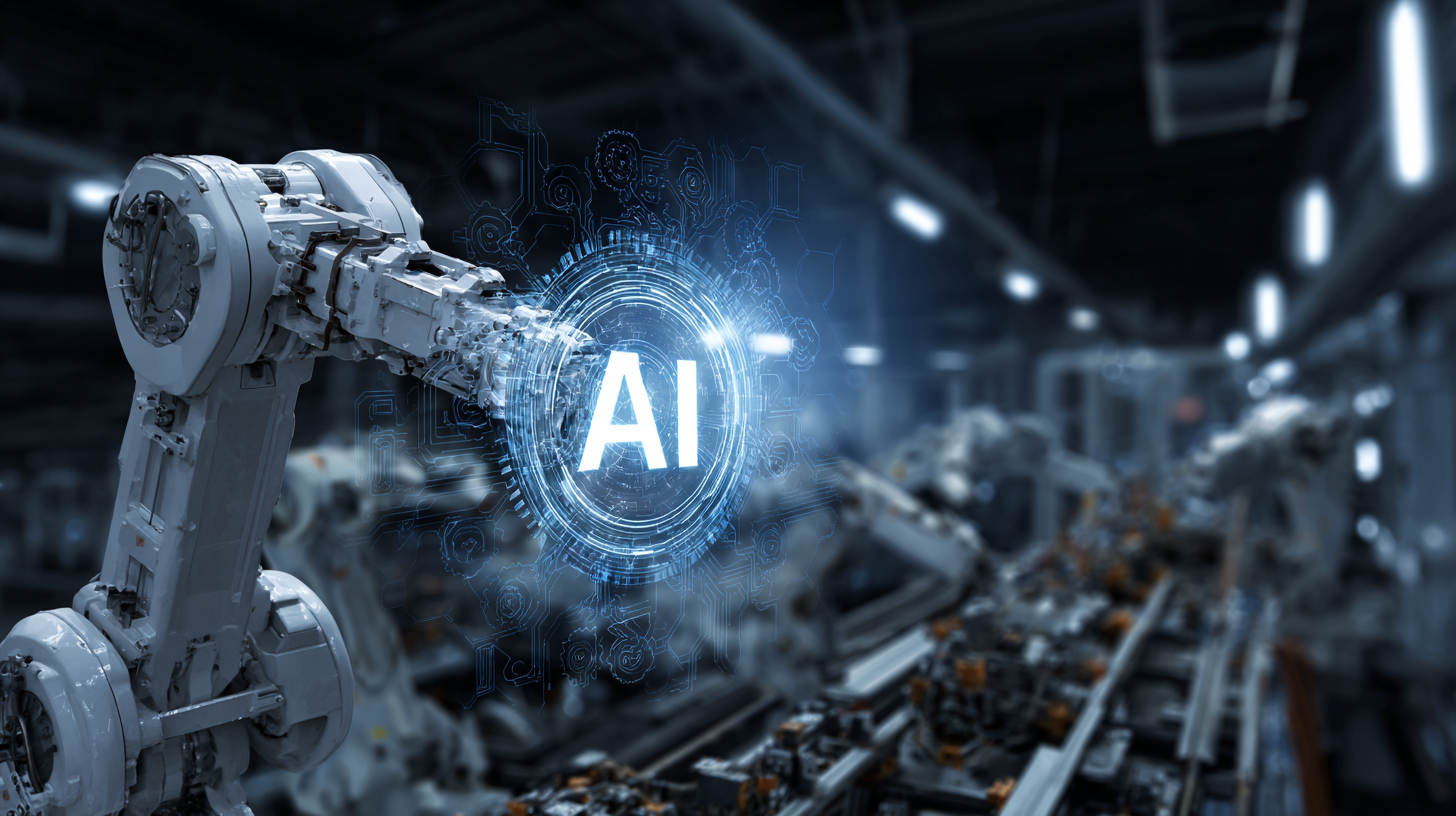
AI Awareness Training: Understanding the Real-World Impact of Artificial Intelligence
Artificial Intelligence (AI) has evolved from a mere concept in science fiction to a driving force reshaping industries across the globe. Whether you’re aware of it or not, AI is likely already influencing your daily routine in some manner. From the way you interact with services to the innovations that enhance efficiency in various sectors, the real-world impact of AI is profound. In this exploration of AI Awareness Training, you’ll gain insights into the practical applications, emerging trends, and governance challenges related to AI.
The Rise of AI in Various Industries
AI technologies are no longer confined to laboratories or tech giants; they are now being incorporated into the very fabric of various industries. Understanding the rise of AI within sectors like healthcare, finance, manufacturing, and more is crucial for you as a professional looking to navigate this evolving landscape.
The healthcare sector, for example, leverages AI to improve patient outcomes through predictive analytics, automated processes, and personalized treatment plans. In finance, organizations utilize AI for fraud detection and credit scoring, revolutionizing how we perceive risk and manage investments. As you delve into these applications, you’ll notice a recurring theme: AI is not just enhancing efficiency but also enabling entirely new business models that prioritize customer engagement and strategic decision-making.

Practical Applications of AI
AI is widely adopted for its practicality and effectiveness in solving real-world problems. Understanding these applications can help you identify opportunities within your own field or organization.
In manufacturing, predictive maintenance transforms how machinery is maintained. By analyzing data from equipment sensors, AI can predict failures before they occur, significantly reducing downtime and repair costs. Similarly, in retail, AI enhances user experiences through personalized recommendations, helping you discover products that genuinely match your preferences. By embracing these technologies, you can position yourself and your organization at the forefront of innovation, ensuring relevance in a competitive marketplace.
Emerging Trends in AI
Keeping track of emerging trends in AI is crucial for professionals aiming to stay ahead. As AI technologies continue to advance, some notable trends are shaping the future landscape.
One significant trend is the rise of explainable AI (XAI). As AI systems become more complex, there’s an increasing demand for transparency in how decisions are made. You’ll find that industries, including finance and healthcare, require AI systems to not only perform well but also to explain their reasoning to stakeholders. This push for transparency adds a layer of accountability, fostering trust among users.
Another emerging trend is the integration of AI with other advanced technologies, such as the Internet of Things (IoT). This fusion allows for enhanced data collection and analysis, driving smarter decision-making and optimizing processes across various applications. As a professional, being aware of these trends can help you make informed decisions about technology adoption and integration.

Governance Challenges in AI
With great power comes great responsibility, and the rise of AI brings forth various governance challenges. Understanding these challenges is vital as you navigate the complexities of AI implementation in your organization.
One of the primary concerns is ethical deployment. The undeniable benefits of AI must be weighed against potential biases and misuse. For instance, AI algorithms can inadvertently perpetuate discrimination if not properly regulated and monitored. As a responsible professional, it is your duty to advocate for ethical practices in AI development and deployment, ensuring that these tools serve the greater good and do not exacerbate existing inequalities.
Additionally, regulatory awareness is essential. The landscape of AI legislation is constantly evolving, and staying informed about applicable regulations can save your organization from potential legal pitfalls. As you engage with AI technologies, consider the implications of regulatory compliance and the importance of developing governance frameworks that prioritize accountability and responsible AI usage.
AI in Healthcare: Transforming Patient Outcomes
AI’s influence in healthcare is particularly notable, with transformative technologies capable of improving patient outcomes and streamlining processes. Understanding these advancements is crucial for professionals in the field.
Predictive analytics powered by AI can significantly enhance patient care by enabling healthcare providers to anticipate patient needs. For example, AI algorithms can analyze historical patient data to identify individuals at risk for certain conditions, allowing for early intervention and personalized care plans. By embracing these technologies, you can play a pivotal role in enhancing patient experiences and outcomes.

Moreover, AI-driven telemedicine solutions offer convenience and accessibility, bridging the gap between patients and healthcare services. As you explore the intersection of technology and healthcare, consider how AI can empower you to provide better, more efficient care to those who need it most.
AI in Finance: Innovating Risk Assessment
In the world of finance, AI is revolutionizing the way organizations approach risk assessment and management. For professionals in the finance sector, understanding AI’s role is essential for maintaining a competitive edge.
AI algorithms are now being utilized for fraud detection, analyzing vast amounts of data in real-time to identify suspicious transactions. This capability not only secures an organization’s assets but also enhances customer trust, as clients feel safer knowing that robust fraud prevention measures are in place.
Additionally, AI can assist in credit scoring by evaluating a broader range of factors beyond traditional metrics. By implementing such tools, financial institutions can offer fairer assessments, ultimately granting access to credit for underserved populations. As you explore AI’s impact in finance, focus on how these innovations can contribute to a more inclusive financial ecosystem.
AI in Manufacturing: Enhancing Efficiency
Manufacturing has been a hotbed for AI innovation, as organizations seek to optimize operations and reduce costs. Understanding how AI enhances efficiency in this domain can offer you valuable insights into best practices and future developments.
One way AI contributes to manufacturing excellence is through smart automation. Automated systems powered by AI can analyze production processes and make real-time adjustments to optimize output. This not only improves efficiency but also minimizes waste, which is increasingly important for sustainable practices.
Furthermore, the adoption of AI in predictive maintenance allows manufacturers to proactively address potential equipment issues, thereby reducing downtime and extending the lifespan of machinery. As a professional in this field, your ability to harness AI’s potential can lead to significant gains in both productivity and profitability.
AI in Retail: Personalizing User Experiences
The retail industry has witnessed significant transformation through AI, with innovations that personalize user experiences and enhance customer satisfaction. As a retail professional, your understanding of these AI applications can give you a competitive advantage.
AI-driven recommendation systems utilize customer data to suggest products that align with individual preferences and past behaviors. This level of personalization not only enhances the shopping experience for customers but also drives sales for businesses. By leveraging AI in this manner, you can create tailored marketing strategies that resonate with your target audience.
Moreover, AI chatbots provide instant customer support, addressing inquiries and resolving issues quickly. This technology not only improves customer engagement but also streamlines business operations. Consider how you can integrate AI into your retail strategies to foster a more personalized and efficient shopping experience for your customers.
AI in Education: Transforming Learning Environments
The educational sector is also embracing AI, transforming traditional learning environments into more interactive, personalized experiences. Understanding these changes is essential for educators and administrators alike.
AI-powered tools can analyze student performance data to identify strengths and weaknesses, enabling tailored learning experiences. For example, platforms that utilize adaptive learning algorithms can adjust the curriculum based on individual student needs, ensuring that each learner receives adequate support and challenge. As you engage with AI in education, consider how these innovations can make a significant difference in student outcomes.
Moreover, AI can help streamline administrative tasks, allowing educators to focus more on teaching and less on bureaucracy. Automation of grading, scheduling, and student tracking can lead to more efficient operations within educational institutions. Embrace these changes and consider how AI can reimagine the future of learning.
AI in Energy: Optimizing Resource Management
The energy sector is witnessing a wave of innovation through AI technologies that optimize resource management and enhance sustainability efforts. Understanding specific applications within this sector can empower you to contribute positively to ecological initiatives.
AI algorithms can analyze consumption patterns to optimize energy distribution, reduce waste, and improve grid reliability. By predicting peak demand periods, AI helps utility companies manage resources effectively, ensuring that energy is available when it’s needed most. As someone working within or alongside the energy sector, your awareness of these technologies can facilitate dialogue about sustainable practices and smarter energy management.
Additionally, AI can drive advancements in renewable energy by optimizing the performance of solar panels and wind turbines. Investing in these technologies aligns with global efforts to transition toward cleaner energy. Reflect on how you can engage with AI to further sustainability within your organization or community.
AI in Public Services: Enhancing Governance and Efficiency
Public services are undergoing significant transformations with the integration of AI, resulting in more efficient governance and enhanced community engagement. Understanding these developments is crucial for professionals in public sectors.
AI applications can enhance decision-making processes by analyzing large sets of data related to public safety, urban planning, and resource allocation. This data-driven approach enables governments to devise strategies that better serve their communities. As you engage with AI in public services, consider how these innovations can enhance governance and foster citizen trust.
Moreover, AI can streamline administrative tasks, allowing public servants to allocate more time to community engagement and program development. By adopting AI solutions, public services can better meet the needs of citizens while operating more efficiently. Embrace this trend and reflect on how you can advocate for AI initiatives that create positive societal impact.
Implementing AI Strategies in Your Organization
With a clear understanding of AI’s impact across various industries, it’s now time to consider how you can implement AI strategies in your organization. Whether you work in healthcare, finance, or any other sector, incorporating AI can be a transformative journey.
Begin by assessing your current operations and identifying areas where AI can add value. Engage stakeholders to discuss potential use cases and align your AI strategy with your organization’s broader goals. Explore various AI tools and platforms, and ensure that you have the necessary infrastructure in place to support implementation.
Additionally, consider the importance of continuous learning. The AI landscape is ever-evolving, and investing in your team’s knowledge will keep your organization competitive. Providing training opportunities and fostering a culture of innovation will empower your team to harness AI technologies effectively.
Closing Thoughts on AI Awareness Training
As you navigate the complexities of Artificial Intelligence, remember that awareness is your greatest asset. By understanding the real-world impact of AI and its applications across industries, you empower yourself to make informed decisions in your professional journey.
From governance challenges to emerging trends, the insights gained through AI awareness training will enable you to adapt to the evolving landscape of technology while advocating for ethical practices and innovative solutions. Embrace the future of AI with confidence, and consider how you can contribute to sustainable practices that benefit both your organization and society.
If you found this article helpful, I encourage you to clap for it, leave a comment to share your thoughts, and subscribe to my Medium newsletter for updates on AI and its real-world applications. Your journey toward understanding AI’s impact starts now—let’s explore this exciting frontier together!
